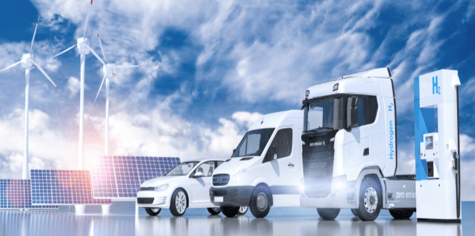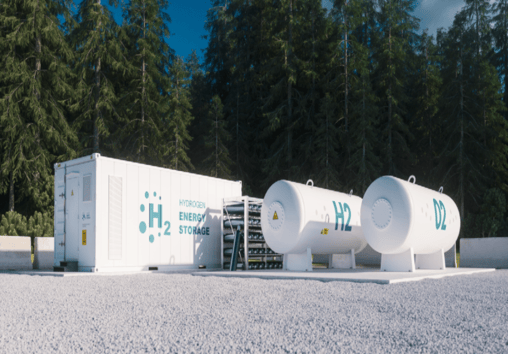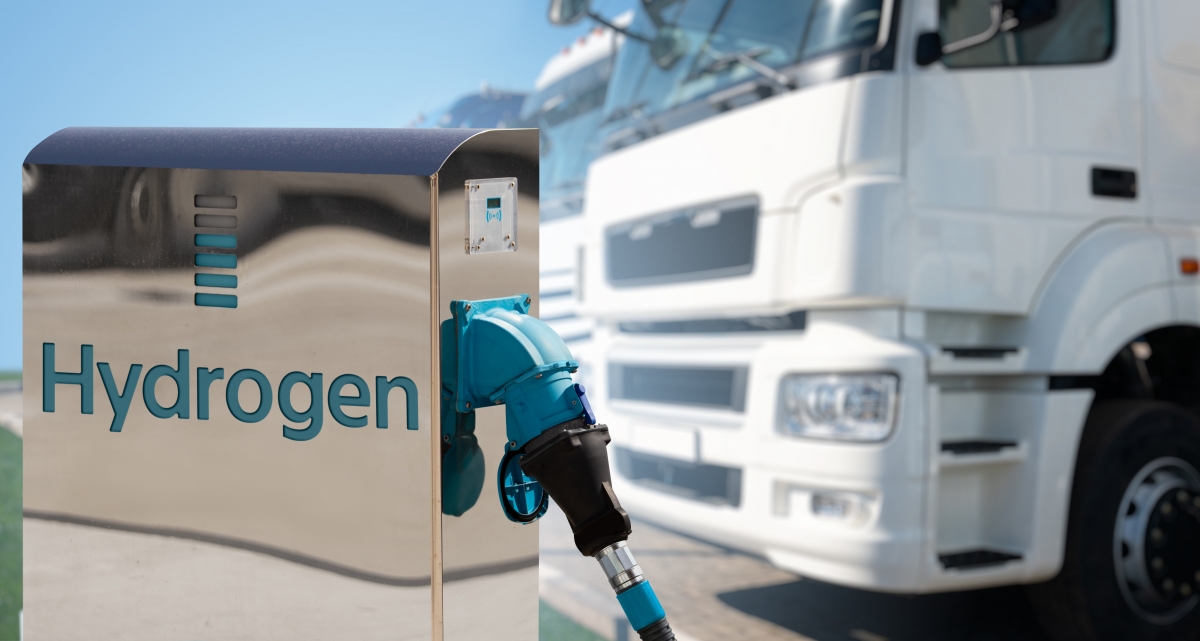Q&A: Why is Ampol moving into hydrogen?
A theme of the third annual Australian Hydrogen Forum is the growing trend of traditional fossil fuel businesses moving into renewable hydrogen. Patrick Luxton, General Manager Hydrogen, Ampol is one of the conference speakers who will be discussing this. Before the forum, we asked him about Ampol’s hydrogen strategy. For an insight into the commercialisation of hydrogen, read on.
1. Why is Ampol moving into hydrogen?
At Ampol, we are committed to reducing our own carbon footprint as well as finding and developing new energy solutions that assist our customers in their energy transition. We believe that hydrogen will be an important part of the future energy mix with a wide variety of applications. Importantly, hydrogen offers a unique opportunity to decarbonise the heavy transport and heavy machinery sectors. Due to Australia’s geography and clusters of metropolitan centres along the coastal fringe, a higher percentage of Australia’s carbon emissions come from transport when compared to other countries. Fortunately, Australia also has an abundance of natural resources including sun, wind and land, which provide the basis for large scale renewable energy generation that should be delivered at some of the lowest cost in the world.
Ampol currently provides approximately one third of Australia’s transport fuel needs and will develop a range of offers for its customers as they seek to decarbonise their own businesses.
2. What are advantages of having a large customer base when developing a new energy product?
We have over 80,000 business customers and serve more than 3 million consumers at our retail sites each week, allowing us to really understand our customers’ needs and, importantly, what it will take for a safe and reliable transition to alternative energy sources.
We know that our customers are busy, and that they want to focus on running their business and getting on with their day to day lives. Using our deep customer knowledge and strong relationships, we will work with our customers through the energy transition to ensure that their energy needs are taken care of whether that be at home, on the road or at their destination – now and into the future.
 Ampol will develop a range of new offers, recognising each customer will have different requirements as they consider how to transition their specific business. Our national footprint and breadth of operations throughout the supply chain will ensure we can tailor the solutions for each of our customers in a variety of situations.
Ampol will develop a range of new offers, recognising each customer will have different requirements as they consider how to transition their specific business. Our national footprint and breadth of operations throughout the supply chain will ensure we can tailor the solutions for each of our customers in a variety of situations.
3. What are the key enablers or roadblocks to kickstarting a local hydrogen economy?
There are a number of issues to consider as Australia embarks on this major energy transition including scale, reliability, safety, a consistent regulatory framework that promotes the adoption of new technology, and coordination between new markets and those that are well established.
To be an effective alternative fuel, users will need to have confidence the supply of hydrogen is safe and reliable. Customers will need to trust that they can make investments in their own businesses, whether this be trucking fleets, machinery on-site, or on-site refuelling assets.
A consistent regulatory framework needs to be established that:
- Encourages investment and uptake in new technology, and
- Provides safe operating standards for the transportation and storage of hydrogen that are consistent across industries, states and territories

The objective of any initial support should be to help the industry obtain scale; there is evidence of this occurring with the development of hydrogen hubs. This will extend into the electricity sector and related infrastructure as this is fundamental to the growth of the hydrogen sector.
There will also need to be a higher degree of coordination between industry and government than is currently required in more mature markets. As the hydrogen market evolves it will fundamentally alter infrastructure requirements and energy flows, requiring a higher degree of coordinated planning between multiple industries and government bodies. There could potentially be a role for government to coordinate requests and planning across multiple jurisdictions and departments in the initial phases of development, specifically in response to industry adoption and development of applications.
4. What are the most exciting projects or developments in hydrogen right now that might lead to it becoming financially viable more quickly?
There are a number of technology developments that when combined have the potential to materially bring forward the point at which businesses will see hydrogen as a commercially viable alternative.
Solar is already one of the cheapest renewable energy sources, with the developments in ultra low-cost solar this has the potential to deliver renewable energy at materially lower cost than today, reducing the overall costs of making green hydrogen.
The costs of electrolysers are predicted to fall dramatically over the next 5 years with significant development in scale production and resultant lower per unit costs.

Additionally, there are material advancements in the technology associated with hydrogen fuel cells, increasing output from smaller units at lower cost, this should see larger applications commercially available from 2025.
When the above is coupled with the establishment of large-scale hydrogen hubs and export facilities in Australia it points to increasing commercial viability and competitiveness against alternatives. The availability and ready access to low-cost hydrogen and equipment will allow users to consider hydrogen in their own applications.
5. Where do you expect the long-term growth to be?
Assuming the hydrogen hubs progressed as planned the size of the export market will far outweigh the domestic demand for hydrogen and will represent by far the largest segment.
Domestically, there are a wide variety of applications for hydrogen to displace other energy sources. Initially it is likely to feature in heavy road transport and blending into natural gas reticulation systems. Future developments will see more on-site applications, particular in heavy machinery, and longer term in hard to abate manufacturing where natural gas usage is prevalent.
Longer term green hydrogen, combined with low-cost renewable energy, has the potential to re-energise Australian manufacturing and provide an avenue for large scale green fertiliser production for domestic use and export.
All in all, the development of a hydrogen industry presents lots of interesting and exciting opportunities for Australia.
6. Ampol has backed Endua in the delivery of hydrogen-powered off-grid clean energy solutions. Do you have any updates for us on how it is going?
6. Ampol has backed Endua in the delivery of hydrogen-powered off-grid clean energy solutions. Do you have any updates for us on how it is going?
The Endua team has continued to work hard to progress their solution and bring it closer to market. As we know, there are still a number of technical challenges with hydrogen technology and Endua have the world class expertise to tackle those challenges. Whilst we can’t say exactly what the timing will be for a market release, the team remains focused on delivering solutions that can deliver clean, reliable power to off-grid industries and regional communities.
You can hear more from Patrick Luxton at the Australian Hydrogen Forum 2022.
Attend the forum, from 23-25 March, and you’ll interact live with speakers and your industry peers.
Energy Monthly
Get a different perspective on energy with our monthly newsletter.
Up next
.png)

Creating clarity during the energy transition.
Get a different perspective on energy with our monthly newsletter.

All rights reserved Energy Insights Pty Ltd




